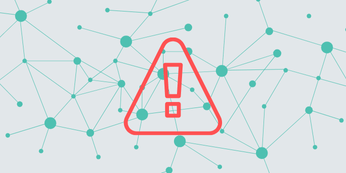
The Operational Black Hole: How We Closed It for Good

Before joining Elevate, I led IT operations and business analysis teams, often stepping into the front lines myself when things broke down. I saw firsthand what happens when systems aren’t built to scale or adapt. Teams burned time on manual workarounds, visibility was limited, and client support felt more reactive than strategic. That experience shaped my approach at Elevate. I knew we had the opportunity—and responsibility—to do it differently.
At Elevate, we don’t wait for problems to appear. We plan for them, automate around them, and make sure our partners never have to think about them. We’re not just solving problems. We’re preventing them. That difference shows up everywhere, from faster claim reimbursements to fewer tickets and better tools for employers.
Let’s look at the top three ways structures typically fail—and how Elevate does it differently.
#1 They don’t build for the edge cases.
Most platforms are built to cover the basics. Elevate doesn’t stop there.
Every time we design a feature, we map out use cases for every type of user: participant, employer, partner, and Elevate admin. That approach means even rare scenarios are accounted for—like when an employee’s claim needs to be approved after a plan runout period. With legacy systems, that meant a ticket and a multi-step override process.
At Elevate, it’s a checkbox. That claim gets processed, the forfeiture is automatically reversed, and the partner admin never needs to escalate it.
We don’t just handle edge cases. We automate them.
#2 They don’t give direct access to experts—just a support queue.
Another big difference: partners talk to experts, not middle layers. Getting an answer shouldn’t be a multi-step escalation.
At Elevate, partners get immediate access to the people who know the answers. That eliminates the delays, misunderstandings, and frustration that come from ticket systems and vague roadmaps.
Starting with implementation and throughout the relationship, our partners have a dedicated Slack channel that connects directly with experts. Have an urgent question at 10 PM on a Sunday? Our team is there to help.
#3 They've given in to the status quo.
At other companies, my team was often the backstop. When other systems couldn’t handle something, it fell to us to patch it manually. That experience shaped how we built Elevate. We took every workaround and turned it into something automated, transparent, and scalable.
This way, our systems are built to anticipate challenges, reduce friction, and deliver measurable results.
Take file processing: Before, partners had to ask IT to pull a file. Now they can see, download, and audit it all from one dashboard. It’s the same with contributions. Elevate applies the tax year as part of the data, removing ambiguity and errors in January deposits.
It’s not just retroactive fixes. We’re improving processes based on usage patterns, support trends, and real-world behavior—like rage clicks and ticket volumes.
We don’t just prevent problems—we raise the bar on quality
With other platforms, broken processes are tolerated. At Elevate, we fix the root cause, automate the solution, and ensure it stays fixed. Quality isn’t a goal—it’s the baseline.
Nothing should fall through the cracks. That’s why we chase down every loose end and continuously improve how the system works behind the scenes.
Our focus on quality and dependability carries through to our product execution as well. From participant claims to employer dashboards, every feature is designed to reduce friction, increase transparency, and deliver a consistently high-quality experience. Our product roadmap isn’t vague, either. If it’s on the roadmap, it’s real. And partners are part of the planning, not just the recipients of updates.
What partners gain from working with us
Here’s what it’s like to work with my team and Elevate:
- We solve problems before they happen. We think through every edge case up front, so you don’t deal with fire drills later.
- We automate the tedious stuff. Transfers and claims shouldn’t take days—they should take clicks.
- You get answers, fast. No ticket queues or account manager filters. Just direct access to the people who built the platform.
- Our roadmap is real. If we say it’s coming, it’s already in development—and we’ll ask for your input along the way.
- You see what’s happening. Claims, CIP failures, card declines, file transfers—all visible, all in real time.
- We improve what matters. From participant confusion to file rejections, we use real behavior data to drive every change.
We’ve lived the operational pain points—and we built Elevate to eliminate them.
About the author
Nicole Caralle is the Director of Program Operations at Elevate, where she leads the integration of operations, product, and technology. With a background in IT operations, business analysis, and data management, Nicole has a proven track record of transforming complex processes into automated solutions. Her hands-on approach helps partners receive direct access to experts, proactive problem-solving, and tools designed for real-world use.
For more expert perspective and insights, follow Elevate on LinkedIn.





